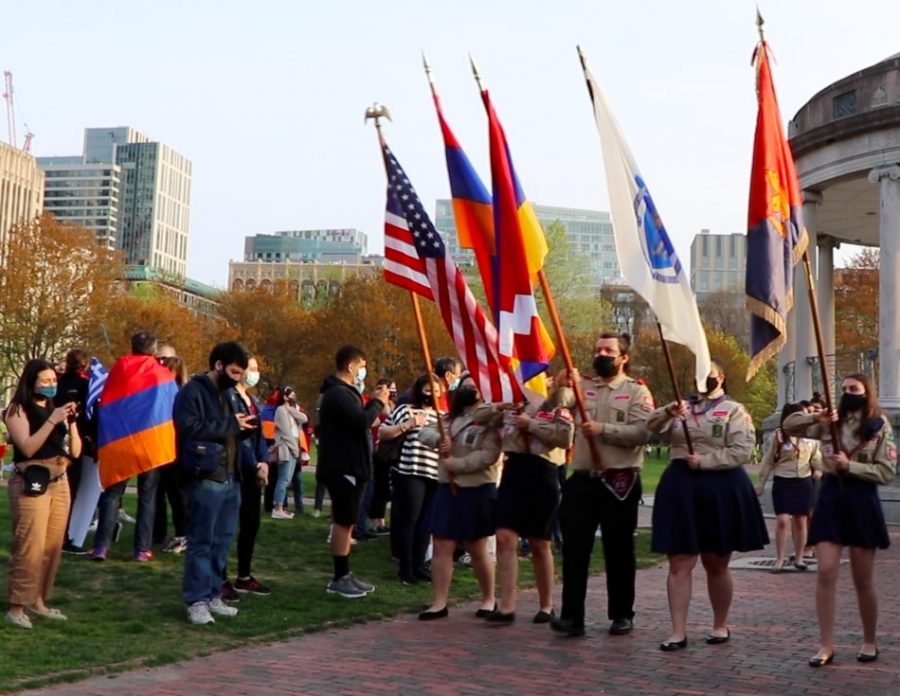On June 14, President Joe Biden held a bilateral meeting with Turkish President Recep Tayyip Erdoğan, following the North Atlantic Treaty Organization (NATO) summit in Brussels.
The meeting was part of Biden’s eight-week trip across Europe, the president’s first trip abroad since he was inaugurated in January. The trip was important for Biden to make in order to reaffirm his support of NATO, an organization which former President Donald Trump was heavily critical of.
Biden said before the meeting that he hoped to reiterate his stance on the disagreements between himself and his Turkish counterpart, who have deteriorating relations with one another, despite being fellow NATO members.
According to Politico, many contested topics were addressed by the two. They included the status of the U.S. military bases in Turkey, the U.S. sanctions on Turkey after the Turkish military bought arms from Russia, the U.S. withdrawal of troops from Afghanistan which Turkey opposed, and the U.S. ongoing support of the Kurdish militias fighting in Syria, who are deemed to be terrorists by Turkey.
“We will of course ask him why U.S.-Turkey relations are at a tense stage,” Erdoğan told Reuters earlier this month. He also mentioned that he had worked with the three previous U.S. presidents and he “did not experience such a tension with them” as he has with Biden.
Biden has become known for taking a strong stance against countries he has deemed to be authoritarian. However, both Biden and Erdoğan believe that their countries’ relationship with one another as NATO members is too important to lose, despite the disagreements, since both countries are opponents of Russia and China.
However, the issue between the two countries that was expected to be the most controversial of all was not mentioned during the meeting; Biden’s recognition of the 1915 Genocide.
“Thank God, it didn’t come up,” Erdoğan said in an interview after the meeting, according to The Wall Street Journal.
In April, the U.S. officially became the 32nd country to recognize the massacres committed by the Ottoman Empire against its native Christian population during World War I as a genocide.
Historians estimate that over 1.5 million Armenians, 900,000 Greeks and 750,000 Assyrians were systematically deported and murdered between 1915 and 1923, as the Ottoman Empire was collapsing.
The Republic of Turkey, as the successor to the Ottoman Empire, has denied the genocide for many years, and allocated thousands of dollars in lobbying and campaigning in order to prevent other nations and international organizations from recognizing the genocide.
Turkey continues to view Armenia, Greece, Cyprus, Syria and Iraq as enemy states, and many citizens of those countries have experienced widespread discrimination and attacks from Turkey, especially when they mention the genocide.
This has led to widespread protests from the Armenian, Greek and Assyrian diasporas around the world, which occur every year on April 24.
Such a protest was staged in Boston last April, where hundreds of Armenians, as well as many Greeks and some Assyrians, marched from the Boston Common past the Massachusetts State House to the Turkish Consulate General to protest Turkey’s denial of the genocide.
However, Biden’s recognition of the genocide was well received amongst the community in Boston, with a commemoration ceremony held in the Armenian Hertitage Park near Government Center, with State Rep. David Muradian (R-MA), Sheriff Peter Koutoujian (D-MA) and former Boston Mayor Michael Flynn among the featured guest speakers.
Armenians, Greeks and Assyrians around the world view the Biden’s recognition of the genocide as the first of many steps necessary to be taken in order to achieve justice and reparations.







